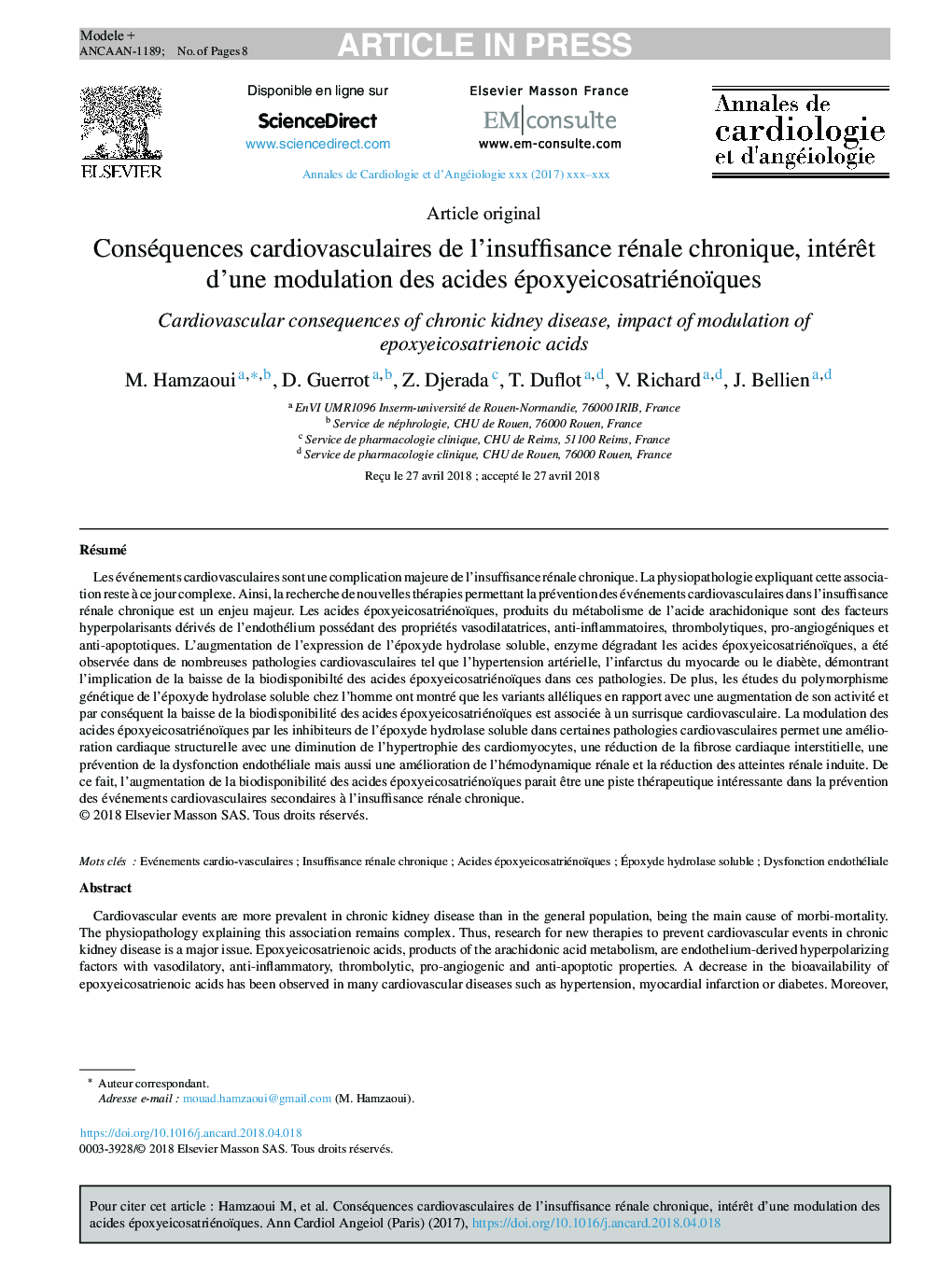| Article ID | Journal | Published Year | Pages | File Type |
|---|---|---|---|---|
| 8652253 | Annales de Cardiologie et d'Angéiologie | 2018 | 8 Pages |
Abstract
Cardiovascular events are more prevalent in chronic kidney disease than in the general population, being the main cause of morbi-mortality. The physiopathology explaining this association remains complex. Thus, research for new therapies to prevent cardiovascular events in chronic kidney disease is a major issue. Epoxyeicosatrienoic acids, products of the arachidonic acid metabolism, are endothelium-derived hyperpolarizing factors with vasodilatory, anti-inflammatory, thrombolytic, pro-angiogenic and anti-apoptotic properties. A decrease in the bioavailability of epoxyeicosatrienoic acids has been observed in many cardiovascular diseases such as hypertension, myocardial infarction or diabetes. Moreover, human studies of genetic polymorphisms of soluble epoxide hydrolase, the enzyme degrading epoxyeicoatrienoic acids, have shown that allelic variants related to an increase in its activity is associated with higher risk of cardiovascular events. Modulation of epoxyeicosatrienoic acids by soluble epoxide hydrolase inhibitors in some cardiovascular diseases induces structural improvements in the heart, vessels and kidneys, including decrease in cardiomyocyte hypertrophy, reduction in cardiac and renal interstitial fibrosis, improvement in renal hemodynamics, and prevention of endothelial dysfunction. In this context, increasing the bioavailability of epoxyeicosatrienoic acids appears to be an interesting therapeutic option in the prevention of cardiovascular events related to chronic kidney disease.
Keywords
Related Topics
Health Sciences
Medicine and Dentistry
Cardiology and Cardiovascular Medicine
Authors
M. Hamzaoui, D. Guerrot, Z. Djerada, T. Duflot, V. Richard, J. Bellien,
